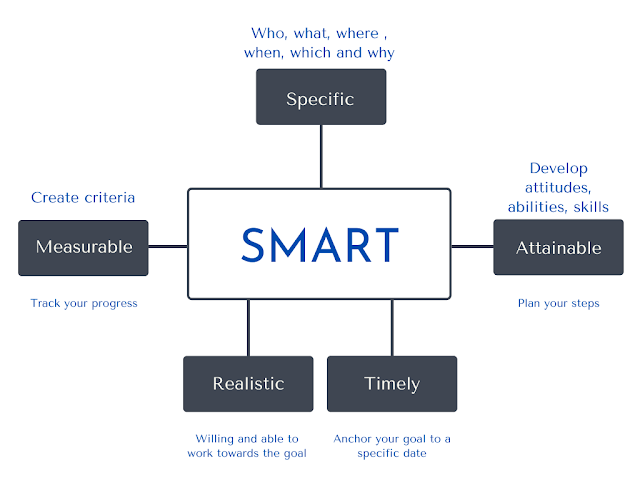Setting SMART Financial Goals
Goal setting is a very important aspect of life. By setting objectives and creating a clear roadmap for how you’ll reach your intended target, you can decide how to apply your time and resources to make progress. Without goals & planning, it can be difficult to determine how to get a certain job, promotion, dream of home, dream of acquiring some skill, or other milestones you want to achieve.
When you set an objective for yourself, you should divide it into steps necessary for success. You can use a framework called SMART goals. The framework is generally all corporate people talk about. Here’s how SMART goals work.
You can apply the same idea to your finance.
First, you should start setting goals for the short term. Plan for next 1-3 years such as start SIP in 3-4 Mutual Funds, learning about the stock market, start investing in the stock market, learn some skill for career or earn some certificate considering career perspective.
then plan for the next 4 to 6 years such as buy a car, buy a flat, etc.
and finally, plan for the long term such as 7 to 20 years or till retirement. such as to save for a child's higher education, save for a child's wedding, save a respectable retirement corpus, etc.
While setting goals it is very important to follow the SMART framework.
S - The goal should be Specific and can be defined.
M - It should be Measurable so that can be tracked afterward.
A - It should be Attainable or achievable. Setting goals you can reasonably accomplish within a certain time limit will help keep you motivated.
R - It should be Realistic considering one's capabilities and situations.
T - It should be time-specific. An end date can help provide motivation and help you prioritize.
SMART framework brings clarity, focus, and purpose to your Financial goal planning & execution.



Post a Comment